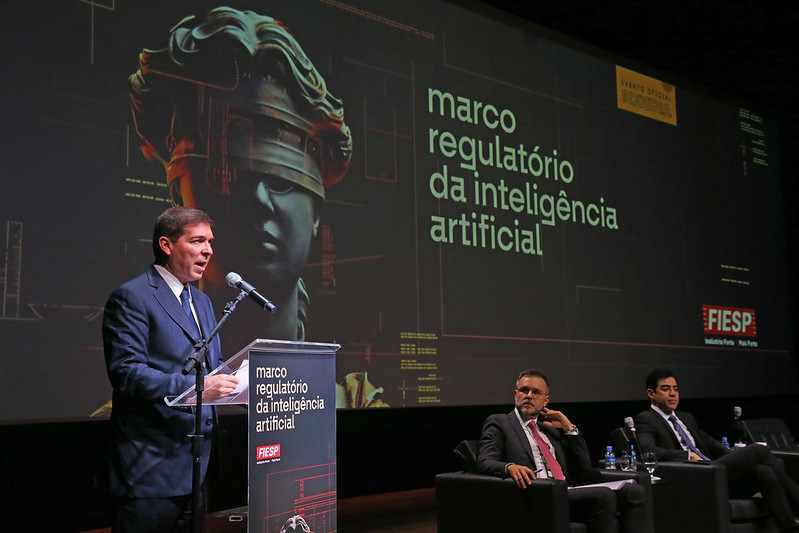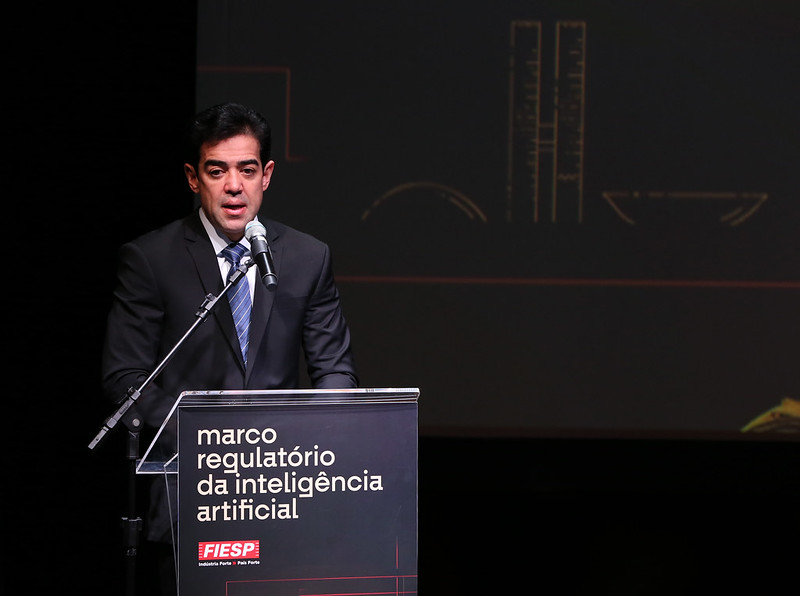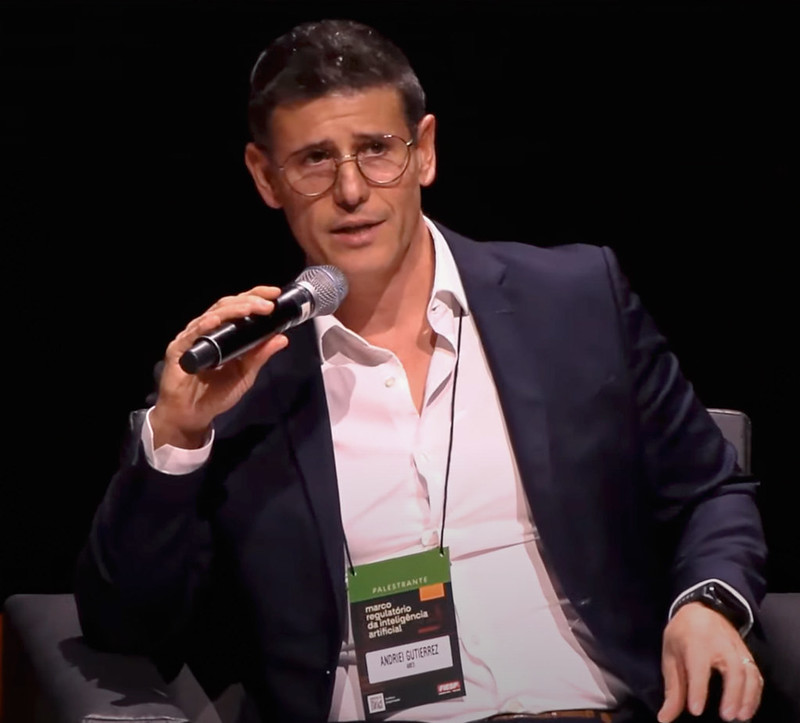 On August 5, the Federation of Industries of the State of São Paulo (Fiesp) brought together prominent experts and business leaders to discuss the Regulatory Framework for Artificial Intelligence (AI), with a particular focus on innovation and legal certainty. The event was attended by Andriei Gutierrez, Vice President of the Brazilian Association of Software Companies (ABES), who presented a thorough analysis of Bill 2338, highlighting the challenges and implications of the proposed regulation.
On August 5, the Federation of Industries of the State of São Paulo (Fiesp) brought together prominent experts and business leaders to discuss the Regulatory Framework for Artificial Intelligence (AI), with a particular focus on innovation and legal certainty. The event was attended by Andriei Gutierrez, Vice President of the Brazilian Association of Software Companies (ABES), who presented a thorough analysis of Bill 2338, highlighting the challenges and implications of the proposed regulation.
In his speech, Gutierrez advocated a risk-based regulatory approach, warning about the legal risks of creating a specific chapter for individual rights and groups affected by AI. He argued that these issues would be displaced to the judiciary, rather than being dealt with administratively, which could generate legal uncertainty. In addition, he highlighted the excessive bureaucracy that would mainly affect small and medium-sized enterprises (SMEs), forcing them to comply with onerous requirements, such as preliminary assessments and transparency measures, even for low-risk technologies.
Gutierrez also criticized articles 14 and 16 of PL2338, which address “high-risk systems” without considering the context in which the technology is applied, thus imposing a disproportionate burden on governance and innovation development. “In five years, there will be no company without any layer of Artificial Intelligence in its systems. We need to demystify Artificial Intelligence,” said the VP of ABES, highlighting the inevitable presence of AI in the modern business environment.
 Fiesp President Josué Gomes da Silva reinforced the importance of AI as a unique opportunity to improve Brazil’s productivity index, emphasizing that this technology should not be seen as a threat. “Artificial Intelligence can significantly boost industrial competitiveness in the country,” concluded Gomes da Silva.
Fiesp President Josué Gomes da Silva reinforced the importance of AI as a unique opportunity to improve Brazil’s productivity index, emphasizing that this technology should not be seen as a threat. “Artificial Intelligence can significantly boost industrial competitiveness in the country,” concluded Gomes da Silva.
Representing the public sector, Bruno Dantas, president of the Federal Court of Auditors (TCU), highlighted the advances in the use of AI to improve the Court’s internal processes. Dantas mentioned that the agency was a pioneer in Brazil in implementing AI technology in several internal systems, benefiting more than 1,400 users through the ChatTCU virtual assistant.
 The VP of ABES participated in the first panel of the event, moderated by Flávio Unes, director of the Legal Department (Dejur) of Fiesp; Laura Schertel Ferreira Mendes, professor at the University of Brasília (UnB); João Caldeira Brant Monteiro de Castro, secretary of Digital Policies of the Presidency of the Republic; and Roberta Buso, legal manager of the Brazilian Federation of Banks (Febraban).
The VP of ABES participated in the first panel of the event, moderated by Flávio Unes, director of the Legal Department (Dejur) of Fiesp; Laura Schertel Ferreira Mendes, professor at the University of Brasília (UnB); João Caldeira Brant Monteiro de Castro, secretary of Digital Policies of the Presidency of the Republic; and Roberta Buso, legal manager of the Brazilian Federation of Banks (Febraban).
The debate, which provided a multifaceted analysis of the impact of AI on the business environment, highlighted the need for well-balanced regulation that promotes innovation, without sacrificing legal certainty and the competitiveness of Brazilian companies.
For more information access: https://www.fiesp.com.br/mobile/noticias/?id=298650.













